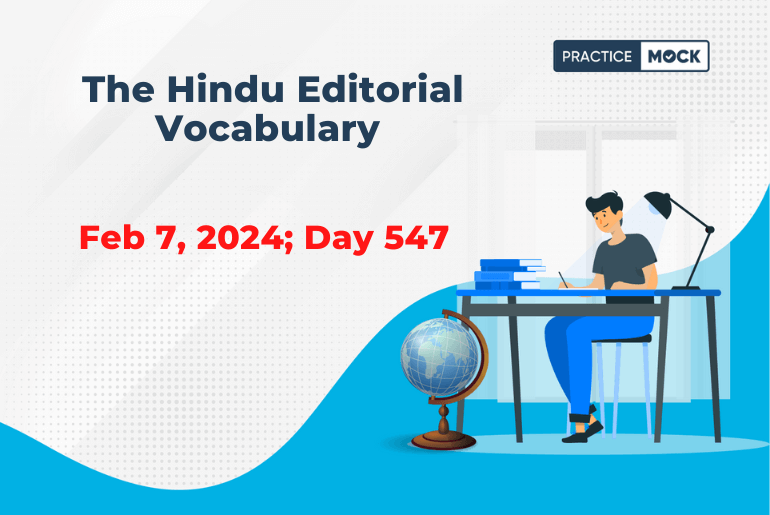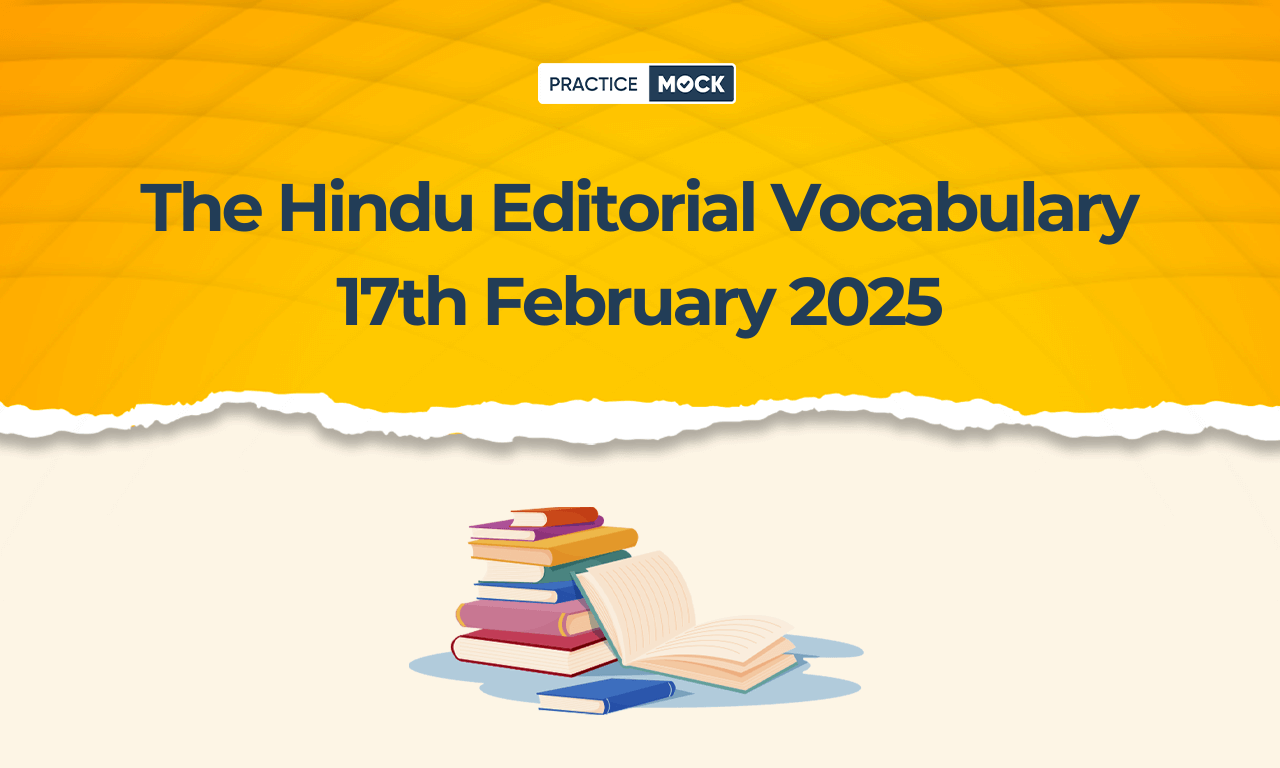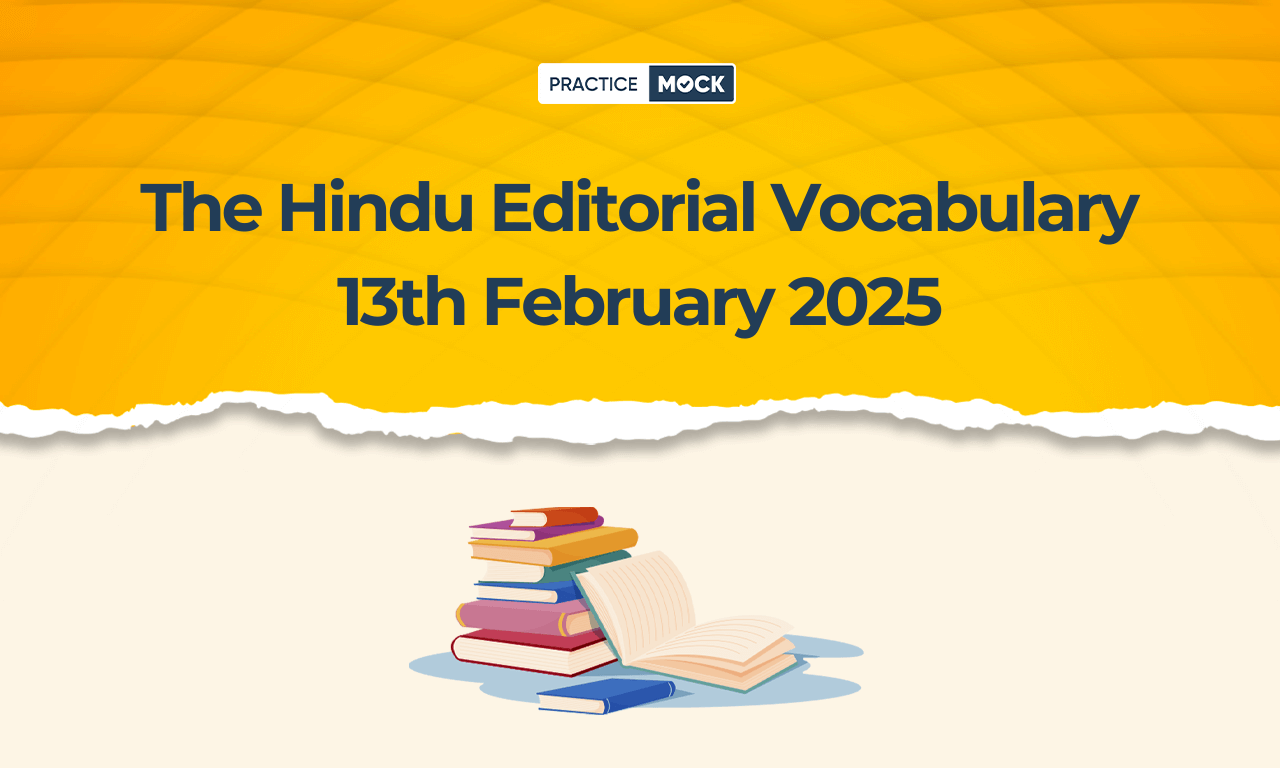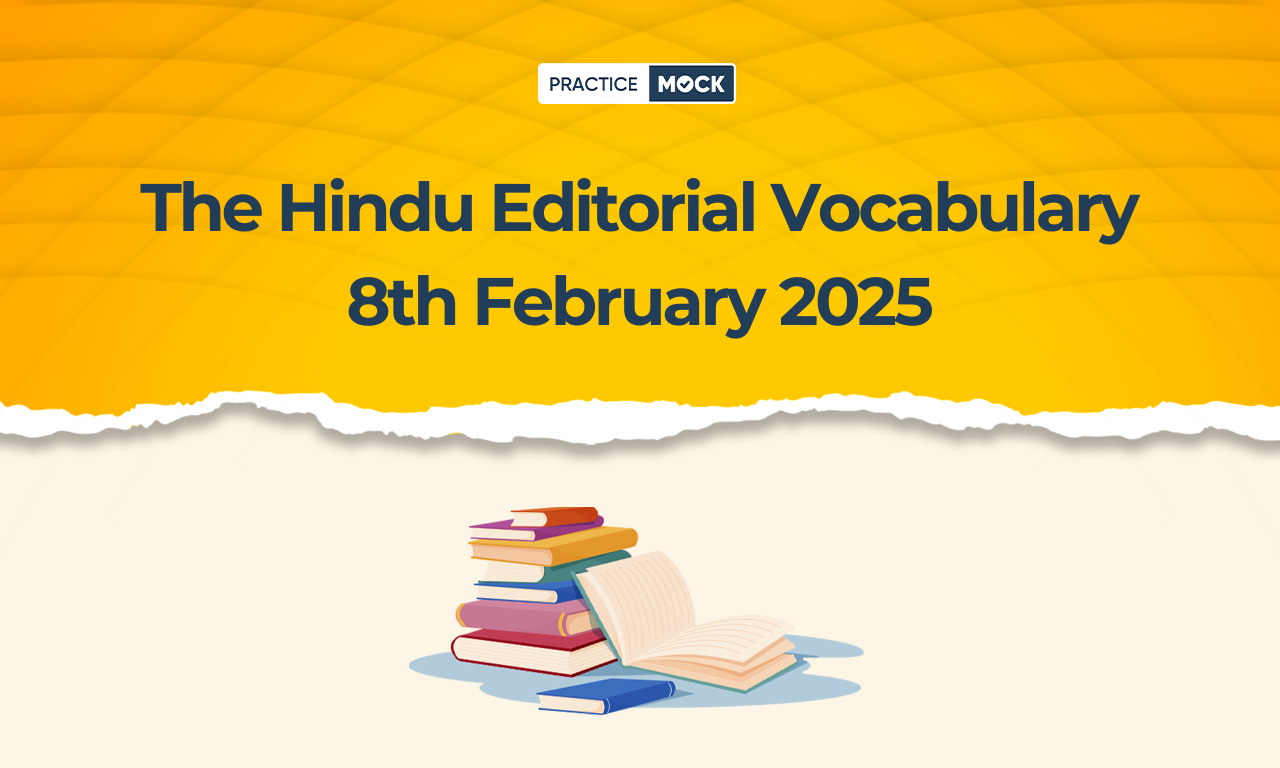The Hindu Editorial Vocabulary– February 7, 2024; Day 547


| Difficult Word/ Phrase | Contextual Sense |
| Outcomes | A result or effect of an action, situation, etc |
| Persist | To try to do or continue doing something in a determined but often unreasonable way |
| Stance | A way of thinking about something, especially expressed in a publicly stated opinion |
| Neutral | Not saying or doing anything that would encourage or help any of the groups involved in an argument or war |
| Instructive | Giving useful or interesting information |
| Projection | A calculation or guess about the future based on information that you have |
| Inflation | A general, continuous increase in prices |
| Consideration | The act of thinking about something carefully |
| Constraints | Something that controls what you do by keeping you within particular limits |
| Borrowings | To get or receive something from someone with the intention of giving it back after a period of time |
| Asserted | To behave in a way that expresses your confidence, importance, or power and earns you respect from others |
| Securities | Investment in a company or in government debt that can be traded on the financial markets and produces an income for the investor |
| Elevated | High or important |
| Systemic | A systemic problem or change is a basic one, experienced by the whole of an organization or a country and not just particular parts of it |
| Improved | Better than before |
Mint Street musings: On the interim Budget and the RBI
The interim Budget gives the central bank some more room to manoeuvre
The latest bi-monthly meeting of the Reserve Bank of India’s Monetary Policy Committee (MPC), whose outcomes (a result or effect of an action, situation, etc) will be revealed by RBI Governor Shaktikanta Das on February 8, is widely expected to result in a status quo on interest rates yet again. At its last review in early December, five of the six MPC members had voted to persist (to try to do or continue doing something in a determined but often unreasonable way) with the ‘withdrawal of accommodation’ stance and the panel had raised its GDP growth forecast for the year to 7% from 6.5%. Hopes of a stance (a way of thinking about something, especially expressed in a publicly stated opinion) shift to ‘neutral’ (not saying or doing anything that would encourage or help any of the groups involved in an argument or war) are slim, but it would be instructive (giving useful or interesting information) to see if the growth estimate is revisited in light of the National Statistical Office projection (a calculation or guess about the future based on information that you have) of a 7.3% uptick in 2023-24. The U.S. Federal Reserve held interest rates for the fourth straight review last week, and chairman Jerome Powell was vague about the proximity of much-anticipated rate cuts this year, seeking more data to establish that inflation had been reined in sustainably. India’s policymakers may not take a direct cue from the U.S. Fed, but the concerns are similar as Governor Das had articulated in December. The 4% inflation (a general, continuous increase in prices) target remains elusive for now — December’s inflation rate hit a four-month high of 5.7%. The RBI expects inflation to average 5.2% in this quarter, which it only expects it to cool to 4% in the July-September phase, providing a window for a rate cut consideration (the act of thinking about something carefully) if the monsoon is normal.
Finance Minister Nirmala Sitharaman’s interim Budget for 2024-25, however, could give the central bank some more room to ease liquidity constraints (Something that controls what you do by keeping you within particular limits) in the economy. While the government did not provide a prop for weak consumption trends, it is also not adding to inflation pressures. A stronger than expected pursuit of fiscal consolidation in this year and the next, and a promise to lower gross market borrowings (to get or receive something from someone with the intention of giving it back after a period of time) from ₹15.4 lakh crore this year to a tad over ₹14 lakh crore in 2024-25, should help. The Minister asserted (to behave in a way that expresses your confidence, importance, or power and earns you respect from others) that this will free up more credit for the private sector now that industry is beginning to invest ‘at scale’. Gross market borrowings as a share of the fiscal deficit will also drop below 84% from 89% this year. With foreign capital inflows into Indian government bonds likely to spike following their inclusion in global bond indices, banks which are the major holders of these securities (investment in a company or in government debt that can be traded on the financial markets and produces an income for the investor) and are facing elevated (high or important) credit to deposit ratio growth rates, should get more space to lend. Economists expect this to help lower borrowing costs for the entire economy. Yields on government bonds have already dropped from 7.14% ahead of the Budget to about 7.05% and could drop further, even as systemic (a systemic problem or change is a basic one, experienced by the whole of an organization or a country and not just particular parts of it) liquidity has improved (better than before) a tad. For Mint Street hawks, that is no small comfort.
Unlock the power of words, one step further! Download the Lists of Word-Meanings of Previous Months here.
Recent Posts
AAI ATC Recruitment 2025 Notification Out for 309 JE Posts
The AAI has released the AAI ATC Recruitment 2025 Notification on its official website to…
SSC CGL 2 Months Study Plan 2025, Get Free PDF, Topic-Wise Tests
In this blog, we have provided the SSC CGL 2 Months Study Plan, take your…
SSC CGL 2025 Notification, Check Exam Date (Expected)
The SSC will release the SSC CGL 2025 Notification on 22nd April on its official…
RBI Grade B Salary 2025, Check In Hand Salary, Job Profile and Career Growth
RBI Grade B Salary 2025 details are provided. Candidates can check it to know the…
List of First in India GK PDF, Download Now
Know the name of all the personalities who pioneered in a particular field. Be through…
Success Story of Himanshi Cleared IBPS PO and Clerk
PracticeMock's mocks quality is simply amazing says Himanshi who has cleared IBPS Clerk & PO.…


